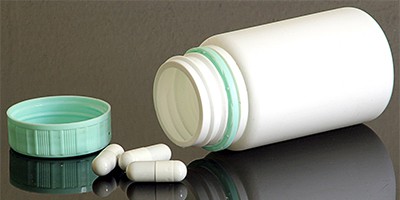Over The Counter Drugs
A range of ailments
| Download this episode | Have you looked in your medicine cabinet lately? If you’re like most Americans, yours probably contains several over the counter medicines designed to treat a range of ailments. Some relieve pain, others are used to prevent diseases like tooth decay or to help manage recurring conditions like migraine or vaginal yeast infection. The U.S. Food and Drug Administration is responsible for determining which medicines can be used safely under a doctor’s care and which can be used effectively without a prescription. There are over 300,000 over-the-counter drug products on the market today, according to the FDA. More than 700 of these products are sold using ingredients or dosage strengths that were only available by prescription 30 years ago. An estimated four out of five Americans suffer from some form of chronic condition. As our population matures, it’s important to have access to OTC medications as we come to rely on them for these conditions. | Over the counter or OTC drugs are considered safe for use without the supervision of a health professional. But that doesn’t mean you shouldn’t take certain precautions when taking such medicines. First and foremost, check the label. Look for active ingredients and the product’s uses, what conditions or symptoms it will treat or prevent. Be sure to read any warnings, these will tell you when not to use the product and alert you about any possible side effects. The directions will tell you how much to take, how to take it and how long to take it. You should also look for information on how to store the medication and what inactive ingredients it contains, such as colors or flavorings. Never take more than the recommended dosage or use the drug for longer than directed. And always read the label of every product you take. Just because products are similar doesn’t mean they are meant for the same condition or that they contain the same ingredients. | If you use over-the-counter drugs on a regular basis, it’s wise to know about any interactions they can cause. Avoid alcohol if you are taking antihistamines, cough-cold products with the ingredient dextromethorphan, or drugs that treat sleeplessness. Do not use drugs that treat sleeplessness if you are taking prescription sedatives or tranquilizers. Check with your doctor before taking products containing aspirin if you’re taking a prescription blood thinner or if you have diabetes or gout. Do not use laxatives when you have stomach pain, nausea or vomiting. Unless directed by a doctor, do not use a nasal decongestant if you are taking a prescription drug for high blood pressure or depression, or if you have heart or thyroid disease, diabetes or prostate problems. Some OTC drugs can interact with food or beverages, causing unwanted results or making medicines less effective, so always read the label before taking any medication. | Special care should be taken when administering an over-the-counter drug to a child. Children aren’t small adults so don’t estimate the dose based on their size. It’s a good idea to use a measuring spoon or dosing cup marked in teaspoons rather than an ordinary kitchen spoon. Follow any age limits listed on the label and don’t double up on the dose just because your child may seem sicker than the last time they took the medication. Never let a child take a medicine by themselves and never refer to any medicine as candy to get them to take it. This could lead to them taking the medication on their own. And before you give your child two medicines at the same time, talk to your pediatrician or pharmacist to determine if they can be used safely together. Remember to store all drugs and dietary supplements out of the reach of children. Don’t leave pills out on a kitchen or bathroom counter and don’t think they are safe if they’re in your purse or briefcase. | There’s no time like the present to look through your medicine cabinet. You should examine your supply of over-the-counter medicines at least once a year and throw away any that are past the expiration date. Medications should be stored in a cool, dry place or as stated on the label. And to be sure no one takes the wrong drug, always leave medicines in their original containers. Most OTC drugs come in tamper-evident packaging to prevent against criminal tampering. To be safe, inspect the outer packaging of a drug before you purchase it and inspect the medicine once you get it home. Don’t buy any product if the packaging appears damaged and don’t use any medicine that looks discolored or abnormal in any way. Never take any medications in the dark. And if you come across something that looks suspicious, contact the store where you purchased the product and take it back. No package is 100 percent tamper proof, so take precautions to protect yourself.
Transcript
Check the label
Transcript
Drug interactions
Transcript
Drugs and children
Transcript
Check your medicine cabinet
Transcript
